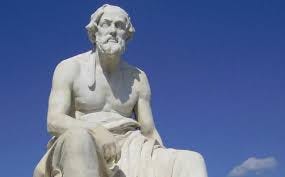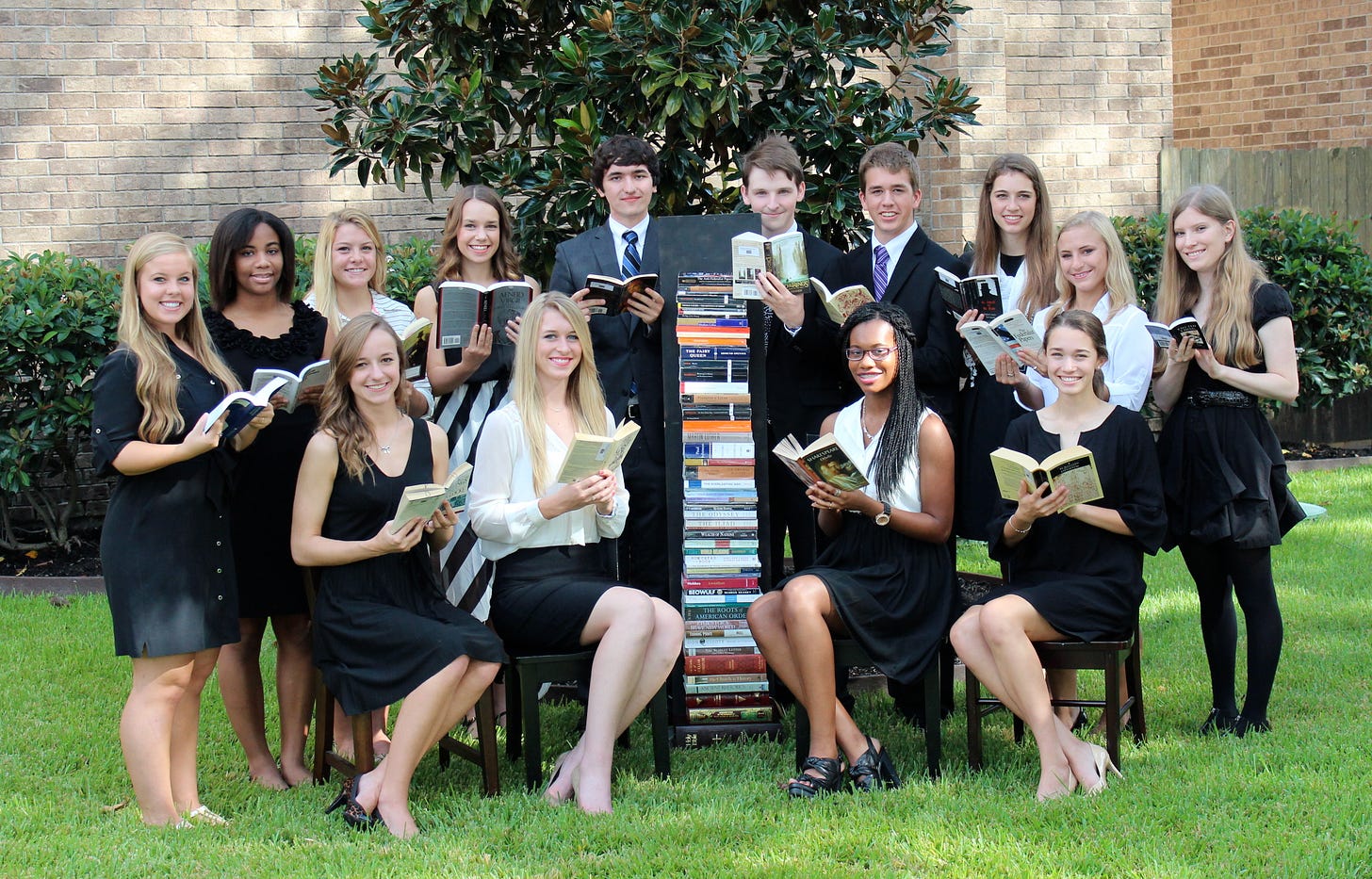Dateline October 21, In the Year of our Lord 2022
Guest Author: Ty Fischer
As an advocate for reading the Great Books, I am asked how we can make our reading list more “diverse” or “less Western.” I get this request from two groups: the Hammerers and the Hammered. The Hammered are people being beaten up in their communities because they have a reading list judged to be insensitive, narrow, or even bigoted. The Hammers ask this same question with that “you know” look, and slight nodding that insinuates that if we don’t balance our reading list by race, gender, or even sexual preference, we are at best failing to prepare our students for the world that is and at worst, perpetuating hateful xenophobia, homophobia, and other “yet-to-be-named-o-phobias.”
Still, these underlying questions persist: “What makes the Great Books great?”, “What books should our students be reading?” and “What perspectives should be represented in your Great Books reading list?” This post is a stab at those questions.
First, let’s consider what makes the Great Books great. Note that “because I said so” is not an adequate answer! “Because Mortimer Adler said so” is better, but still lacking. Why do the same books show up on Great Books lists, and is the construction of these lists governed by prejudice? The Great Books might be about certain places and times but they go beyond particulars of time and place. The Great Books are applicable to the human condition in general. Thucydides writes about a war between two city-states in Ancient Greece — Sparta and Athens — but he claims:
I have written my work, not as an essay which is to win the applause of the moment, but as a possession for all time. (1.22)
How can this ancient war be something that yields wisdom in our day? It does so by demonstrating the power of leaders to move the human heart (Pericles’ “Funeral Oration”) or the way that revolution infects and destroys a society (the Corcyra Revolution). This book is about a time and place, but it is also about many times and places. That is greatness.
Perhaps Philosophy shows this most powerfully. Plato’s Republic is written by an ancient Greek but it is not just written for Greeks. It is equally valid for every age. In the famous “Analogy of the Cave,” Socrates tells us that the job of the philosopher is to go into caves where men are bound watching shadows on the wall thinking that they are viewing reality, and to bring them out into the sunlight of truth in the real world. He called these places caves; we call them cable TV news or TikTok.
Here is one little “tell” about a Great Book. A Great Book can typically be moved from one context or place or time setting to another. This happens with Shakespeare all the time. Romeo and Juliet can be moved from Verona to Miami Beach with only a few dialogue changes. Hamlet can be moved to Victorian England or to Mars and it would still have the same applicability. Greatness is not about a nation, a tribe, or a time period; greatness speaks to the broader human condition.
That brings us to our second question. If we can define greatness, then are these Great Books all that we should study? My answer is a qualified “no.” I think that there are two types of books that our students should be reading: the Great Book and Good Folk Literature. We have already defined the Great Books, but what is this additional category of Good Folk Literature? Folk Literature is made up of books that have to do with the history of the place where you live. Everyone needs to read Herodotus’s Histories, but Killer Angels, the masterful work of historical fiction by Michael Shaara about the Battle of Gettysburg, will certainly be more meaningful and necessary for Americans than it would for Malaysians or Argentinians. It is folk literature — really good folk literature, but American Folk Literature nonetheless. So, your students should be reading a steady diet of the Great Books, along with Good Folk Literature from the country where they live.
This brings us to our final question: “What perspectives should be represented in your Great Books reading lists?” Really, the last paragraph answers that question. Your students should read Great Books, books that speak to the human condition at all times at all places, and Good Folk Literature from the place where your students live. This means that classical Christian schools should reject attempts to balance reading lists based on desires to add books from authors because of race, gender, or anything else other than the quality of the book and the folk literature that pertains to your culture and its history.
The Great Books are not distributed to each nation equally. This is not to say that every race, tribe, and nation doesn’t have folk literature that students in that place need to read. This is the application of an equal standard, but the equal application of a good standard will not result in anything like equity.
If you have noticed, many references to a book in this post are from ancient Greeks. I have heard the objection or concern that someone just wanted more of the authors to “look like me.” The point we need to make in response is deeper and more profound, however. Dante, Austen, Plato, Athanasius, or Cervantes might not look a lot like you (none of them look much like me). But if you read them, you will find that they are like you on the inside — or what you and I might become — and that their work feeds your soul and shapes your heart to be a mature human whatever your tribe, tongue, nation, or race.





Very good! While I think there IS absolutely quality literature written by people who are considered diverse, demographics are not a qualification in themselves. I’ve unfortunately been the victim of such diversity for its own sake reading…I was assigned The Color Purple in the 11th grade and I still regret that the school did not notify parents of the horrible sexual material in it that children should not be exposed to. I hate that I was introduced to those concepts too early.
That was Fairfax County, VA in the early 2000s where, despite that, there were still other quality books assigned, and US history was still taught in a manner where you were exposed to material from both sides and encouraged to genuinely debate and if you could defend your opinion with facts, then that was fine. Fairfax County Public Schools now? A cesspit I am ashamed to have associated with my name.
If we are going to read “diverse” literature, better to select the sort that actually teaches good Christian values and good sense. It DOES exist out there.
C. S. Lewis’ essay On Reading Old Books is another great prompt regarding this topic. Thanks Ty!